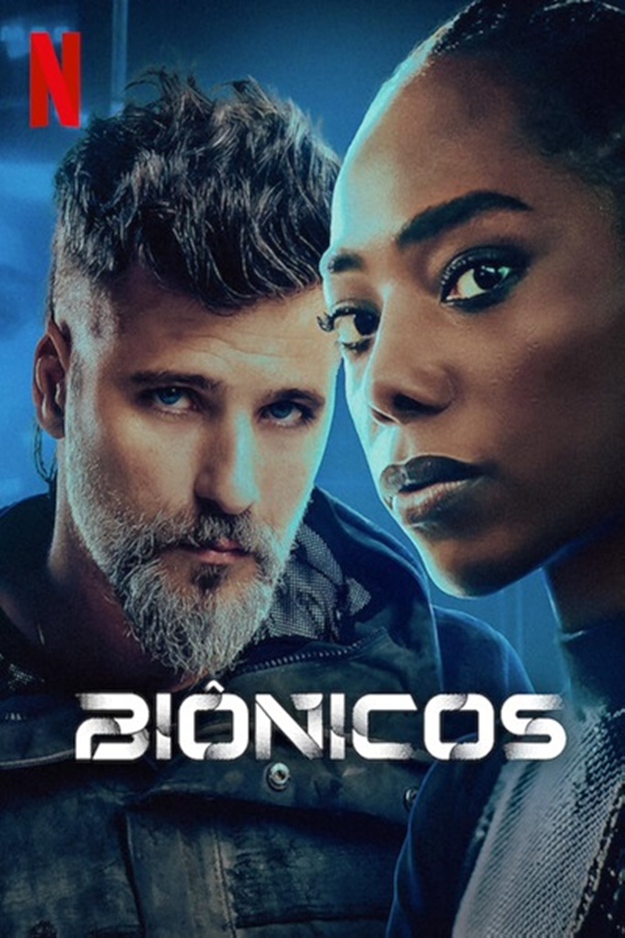 IMDb
IMDb[PT-BR]
Sinopse: Quando as próteses robóticas se tornam o grande objeto de desejo dos atletas, o mundo do esporte começa a vivenciar uma nova (e obscura) era. No entanto, para uma família em particular, o peso de toda essa “modernização olímpica” criará uma forte disputa por atenção e poder com algumas consequências impossíveis de serem mensuradas.
O ano é 2035. Em mundo futurista, os brasileiros começam a ter o vislumbre de um futuro realmente tangível: próteses robóticas. Esse avanço tecnológico permite que os membros amputados de algumas pessoas (neste caso, os atletas) se tornem à sua principal motivação para continuar vivendo, e competindo. No entanto, quando interesses contrários à natureza essencial dessa ideia começam a ser explorados, o “mercado negro” desse tipo de material se torna perigoso e bastante injusto perante o que deveria ser considerado como igualitário para todos os atletas com alguma deficiência.
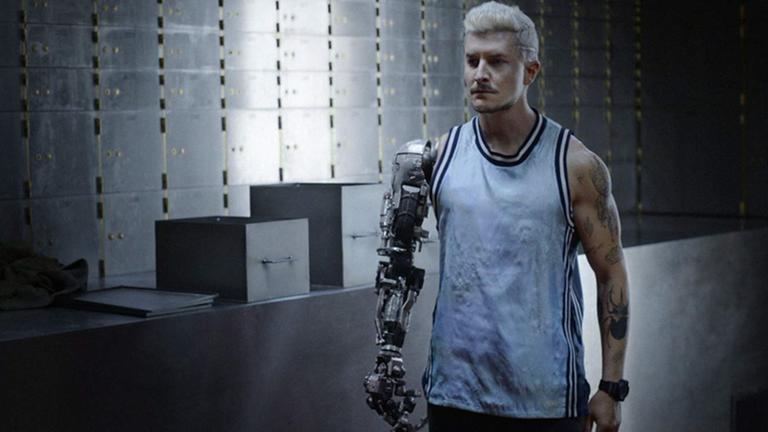 Folha Vitória
Folha Vitória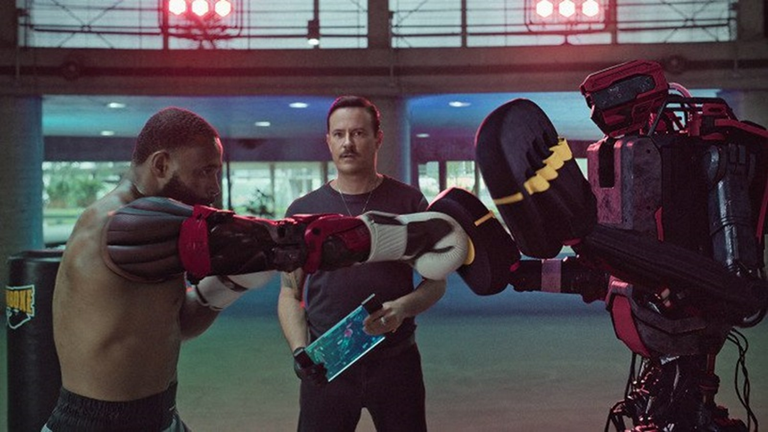 Game Arena
Game ArenaSendo este um filme brasileiro (neste caso, produzido com o apoio da Netflix), eu preciso ressaltar, acima de qualquer coisa, o fato dele tangenciar sobre um gênero cinematográfico que ainda é muito carente na filmografia do Brasil, que é a ficção científica. Dito isso, eu também acho necessário reconhecer que quase todas as ideias por trás dos principais argumentos principais presentes ao longo deste longa-metragem são boas e repletas de ramificações, mas o grande e principal defeito desse filme é não conseguir saber quem ele é, e por consequência, não ter um bom desenvolvimento.
Eu posso facilmente definir todo esse projeto em três partes. No primeiro ato, nós somos apresentados a uma realidade supostamente distópica, mas tudo o que é mostrado na tela não condiz com uma possível realidade (afinal, tudo o que é mostrado na tela deveria existir em aproximadamente onze anos, e eu realmente não consigo enxergar quase nada do que é mostrado na estória sendo parte de uma realidade brasileira). Isso já é um argumento mais do que suficiente para tirar o meu foco do que está sendo contado. Tudo é muito “oco” e despretensioso, com alguns toques “modernos”.
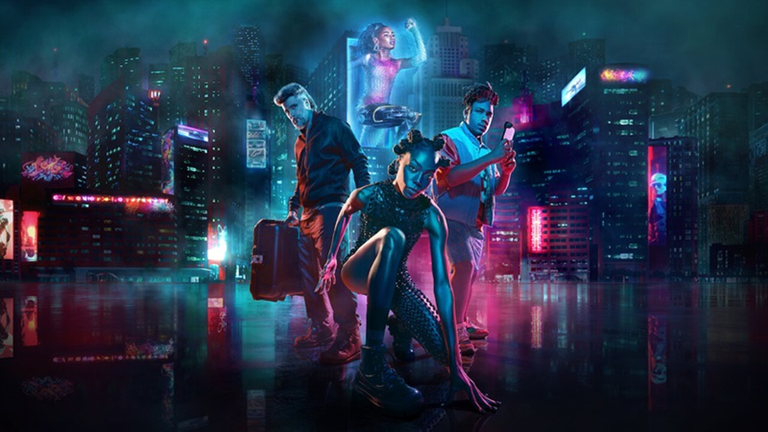 Netflix
NetflixNo segundo ato, à trama melhora um pouco por conseguir estabelecer melhor o seu conteúdo: uma trama com toques cyberpunks, apoiada por um drama familiar (que neste caso reside na competição entre duas irmãs dentro do esporte de salta a distância) e uma investigação policial (que, de longe, é a pior coisa desse roteiro inteiro tamanha é a ineficácia de uma equipe investigativa do futuro) que acabam convergindo em uma narrativa que, de fato, tinha muito potencial, mas que infelizmente foi escrita com muitas incongruências. O roteiro é curioso, mas bastante falho e vazio na essência.
No terceiro ato, à chance de mergulhar dentro de suas próprias subtramas são desperdiçadas. O duelo familiar de duas irmãs é resumido à uma disputa quase que entre duas “adolescentes” (não há qualquer profundidade mais aparente na rivalidade entre elas dentro, ou fora do mundo dos esportes). Nesta parte do roteiro, o pai e o irmão delas são dois “acessórios” narrativos que deveriam ter um peso maior na trama, mas são resumidos a personagens bem secundários. A parte cyberpunk se resume apenas ao (fraco) visual futurista, e à “investigação policial” é uma vergonha retumbante.
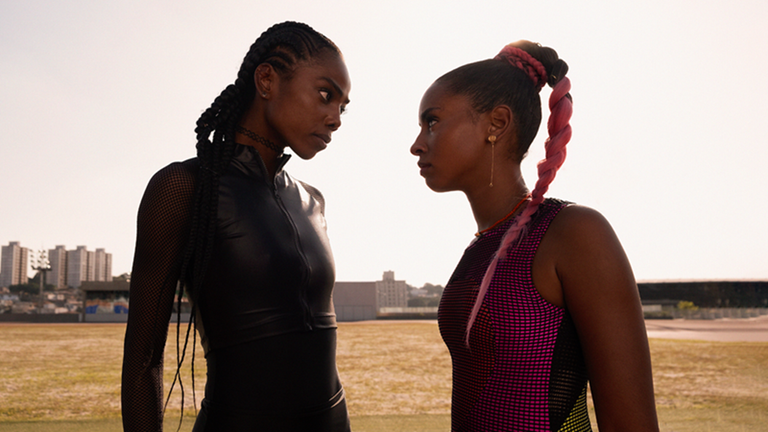 Mundo Negro
Mundo Negro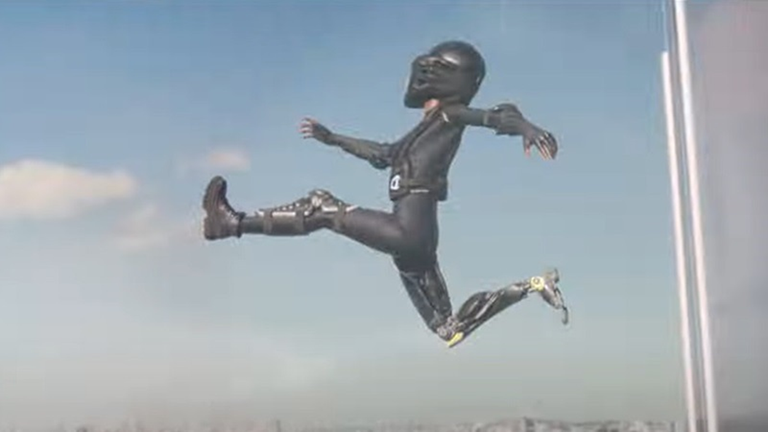 II Cineocchio
II Cineocchio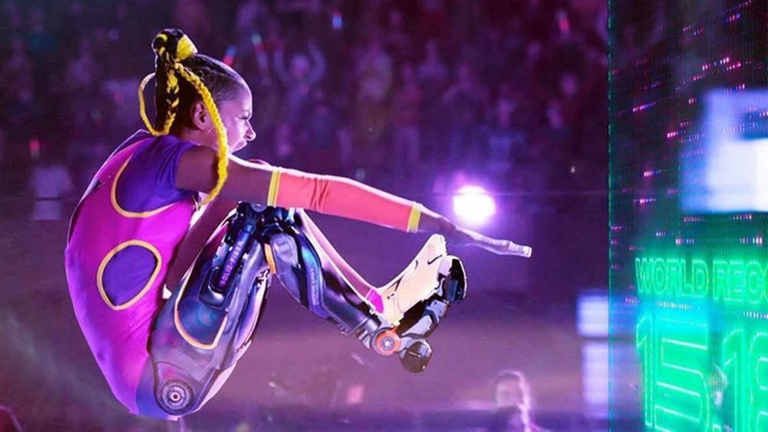 Estado de Minas
Estado de MinasSem mencionar que os principais dilemas que o próprio filme levanta (a questão dos atletas paralímpicos e como suas novas conquistas serão vistas pela sociedade “normal”, bem como à exploração dessa revolução tecnológica em outros campos de atuação, como à saúde, educação e segurança, apenas para citar alguns exemplos) são simplesmente muito ignorados em detrimento de uma abordagem que dá privilégio total ao cenário de ação, que ainda sim, é fraco no que se propõe a fazer, e apenas reforça que mesmo dentro do seu argumento mais “pesado”, ainda falha demasiadamente.
Sob o comando do diretor Afonso Poyart (que até tem um olhar relativamente interessante sobre cinema com algumas ideias “atípicas” para a normalidade do mercado brasileiro), o filme falha demais por não conseguir ir além do seu bom entretenimento passageiro. Apesar de todos os problemas já mencionados anteriormente, é impossível negar que uma forte tentativa de criar algo diferente foi feita aqui, ainda que o resultado não tenha sido obviamente bom. Poyart deve abrir as portas para tramas mais alinhadas dentro deste gênero cinematográfico no futuro, mas por agora, é uma falha.
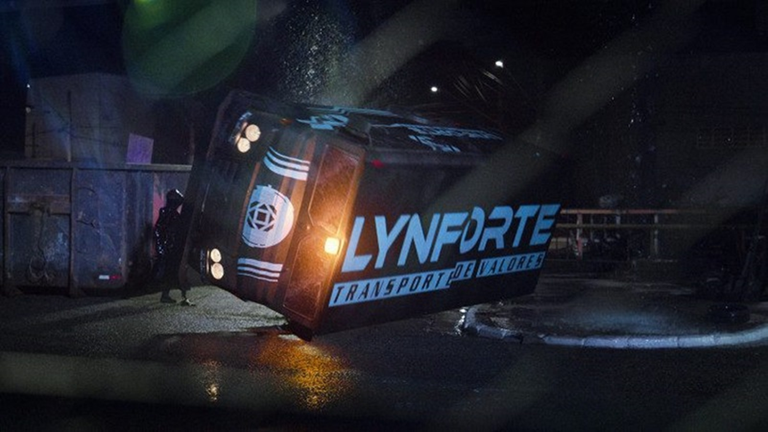 Game Arena
Game ArenaBiônicos tem no seu elenco bons nomes, como Jessica Córes e Bruno Gagliasso, mas ambos são desperdiçados com os seus respectivos personagens mal desenvolvidos e bem desprovidos de qualquer carisma (o que é válido também para o restante do elenco de apoio, aliás). Por outro lado, em sua parte mais técnica, o filme ousa (um pouco) quando entra em cena os efeitos especiais, que oscilam entre momentos digitais bons e medianos (com um destaque negativo para quase todas as cenas internas e um breve destaque positivo) e traz uma fotografia ilustrativa do futuro verde e amarelo.

Synopsis: When robotic prosthetics become the great object of desire for athletes, the world of sport begins to experience a new (and dark) era. However, for one family in particular, the weight of all this “Olympic modernization” will create a strong struggle for attention and power with some consequences that are impossible to measure.
The year is 2035. In a futuristic world, Brazilians are beginning to see a glimpse of a truly tangible future: robotic prosthetics. This technological advance allows the amputated limbs of some people (in this case, athletes) to become their main motivation to continue living and competing. However, when interests contrary to the essential nature of this idea begin to be explored, the “black market” for this type of material becomes dangerous and quite unfair compared to what should be considered equal for all athletes with a disability.
Since this is a Brazilian film (in this case, produced with the support of Netflix), I need to highlight, above all else, the fact that it touches on a cinematographic genre that is still very lacking in Brazilian filmography, which is science fiction. That said, I also think it's necessary to recognize that almost all the ideas behind the main arguments present throughout this feature film are good and full of ramifications, but the biggest and main flaw in this film is not being able to know who he is, and consequently, not have good development.
I can easily define this entire project into three parts. In the first act, we are introduced to a supposedly dystopian reality, but everything that is shown on the screen does not match a possible reality (after all, everything that is shown on the screen should exist in approximately eleven years, and I really can't see almost none of what is shown in the story is part of a Brazilian reality). This is already more than enough argument to take my focus off what is being told. Everything is very “hollow” and unpretentious, with some “modern” touches.
In the second act, the plot improves a little by being able to better establish its content: a plot with cyberpunk touches, supported by a family drama (which in this case resides in the competition between two sisters within the sport of long jumping) and a police investigation (which, by far, is the worst thing about this entire script, such is the ineffectiveness of an investigative team from the future) that end up converging into a narrative that, in fact, had a lot of potential, but was unfortunately written with many inconsistencies. The script is curious, but quite flawed and empty in essence.
In the third act, the chance to delve into its own subplots is wasted. The family duel between two sisters is summarized as a dispute between two “teenagers” (there is no more apparent depth in the rivalry between them inside or outside the world of sports). In this part of the script, their father and brother are two narrative “accessories” that should have a greater weight in the plot, but are reduced to very secondary characters. The cyberpunk part is just about the (weak) futuristic look, and the “police investigation” is a resounding shame.
Not to mention that the main dilemmas that the film itself raises (the issue of Paralympic athletes and how their new achievements will be seen by “normal” society, as well as the exploration of this technological revolution in other fields of action, such as health, education and security, just to cite a few examples) are simply largely ignored to the detriment of an approach that gives total privilege to the action scenario, which is still weak in what it sets out to do, and only reinforces that even within its “heaviest” argument ”, still fails too much.
Under the command of director Afonso Poyart (who even has a relatively interesting view of cinema with some “atypical” ideas for the normality of the Brazilian market), the film fails a lot for not being able to go beyond its good passing entertainment. Despite all the problems already mentioned above, it is impossible to deny that a strong attempt to create something different was made here, even if the result was obviously not good. Poyart should open the doors to more aligned plots within this cinematic genre in the future, but for now, it's a failure.
Bionics has good names in its cast, such as Jessica Córes and Bruno Gagliasso, but both are wasted with their respective poorly developed characters and completely devoid of any charisma (which is also valid for the rest of the supporting cast, in fact). On the other hand, in its more technical part, the film dares (a little) when the special effects come into play, which oscillate between good and average digital moments (with a negative highlight for almost all internal scenes and a brief positive highlight). and features an illustrative photograph of the green and yellow future.

Posted Using InLeo Alpha

